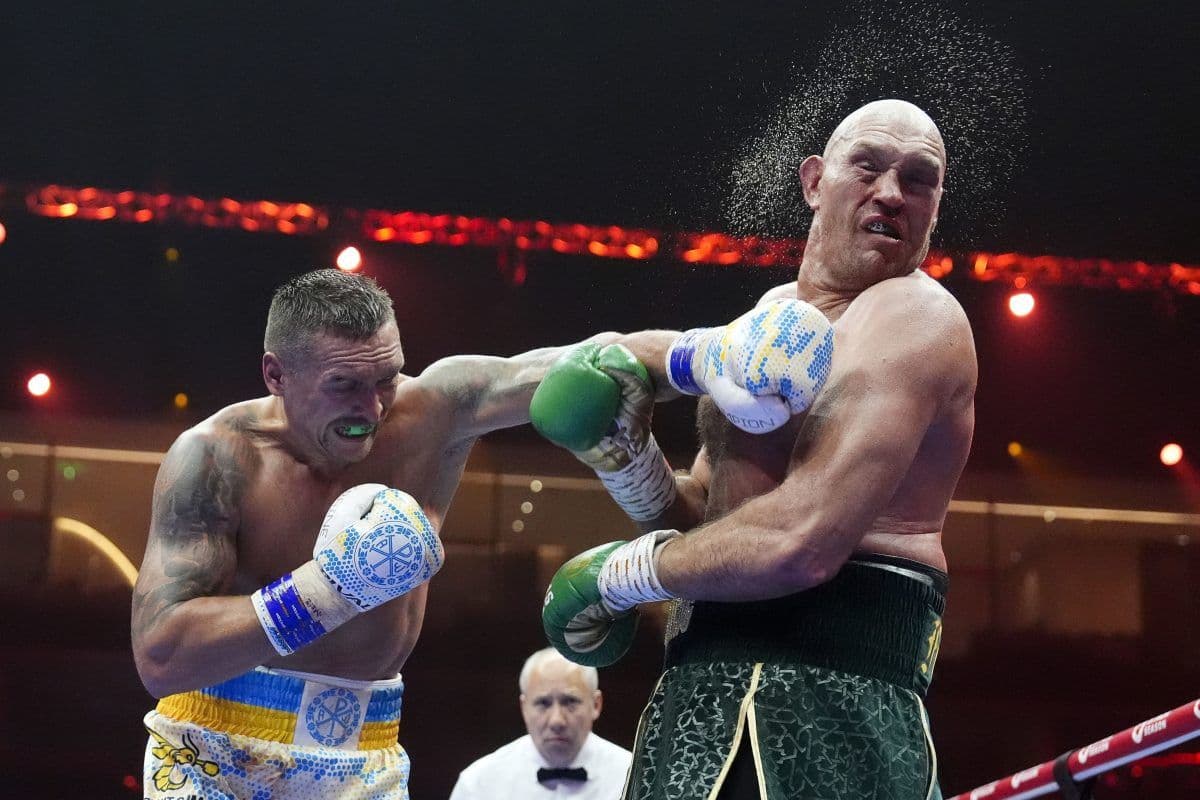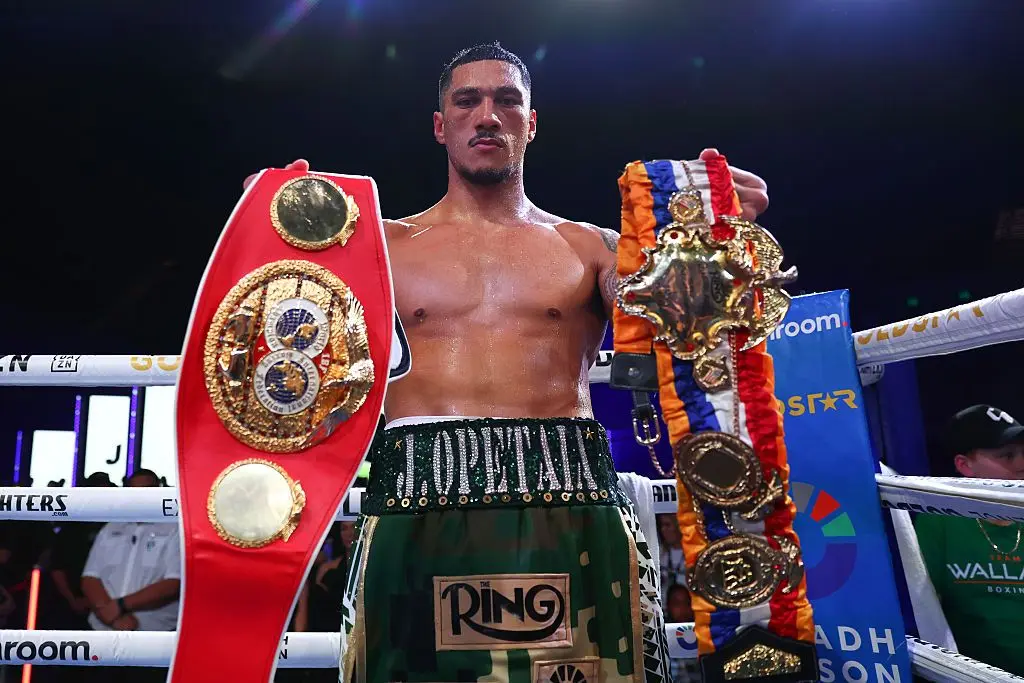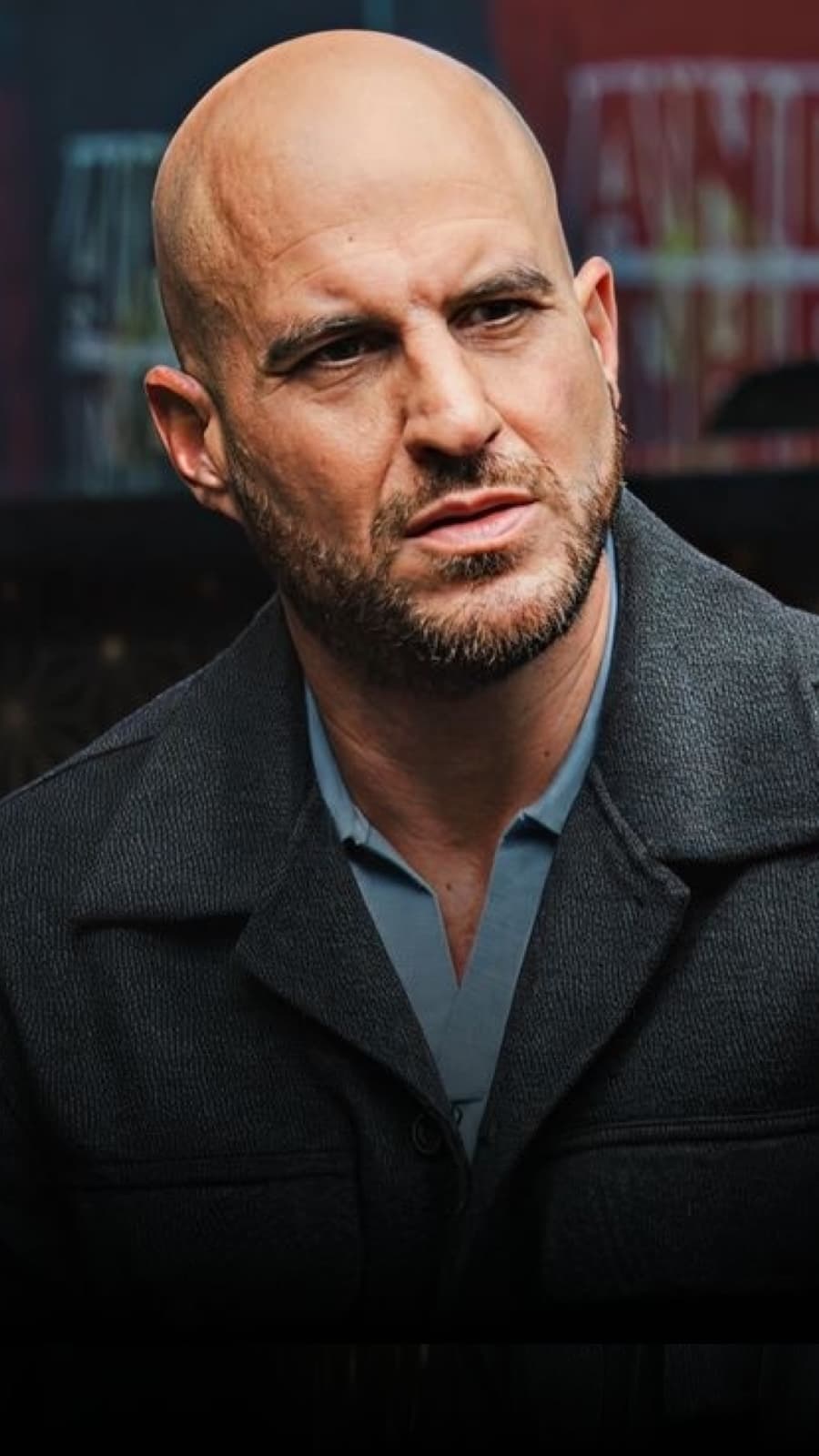

Patrick Connor: Where Does Oleksandr Usyk Rank All-Time? Skill Is There, But What About Resume?

Patrick Connor
Jul 27, 2025
6 min read
Any attempt at nailing down where Usyk falls is incomplete before his career is officially done. But as it stands, he has a perfectly rational argument for being among the top 12-15 heavyweight champions of all time.
Oleksandr Usyk is the one and only heavyweight champion of the world. After living through eras of splintered belts and titles, having only one almost feels strange.
There have been fighters who shunned one alphabet organization or another and refused to play their games, and there have been fighters whose star power could bend the will of those organizations. Carefully navigating sanctioning bodies’ rules and cleaning up a division despite them might be the rarest form of domination in modern boxing.
Doing it in two divisions, as Usyk has, is special indeed.
It’s inevitable that modern fighters who flirt with all-time greatness, and especially those who approach a level few ever experience, will be compared to the greatest of all time. And it’s worth acknowledging that immediately measuring Usyk up to heavyweight royalty is like equating Basquiat to Rembrandt; boxing isn’t even the same now as it was in the 1990s, much less the 1890s. Nevertheless, such analogies are the only way to make sense of the current champion’s reign.
The space reserved for the top 5 or 10 heavyweights of all time is essentially hallowed ground. They all accomplished incredible things that are either unrivaled among their fellow heavyweights, or operated in divisions so deep their deeds can’t be ignored. Believing a fighter could defeat one or more of the greatest is perfectly sane, but earning a ranking among them based on accomplishments is nearly impossible to do.
Most heavyweight rankings and lists have Muhammad Ali and Joe Louis in the top two spots in either order, and for excellent reasons: Ali captured the heavyweight championship three times over the span of 14 years, Louis made a record 25 defenses over a 12-year reign. That’s before getting to their notoriety, popularity and global impact.
After Ali and Louis, preference and subjectivity quickly enter the equation. In various order, Larry Holmes, Rocky Marciano, George Foreman, Joe Frazier, Jack Dempsey, Evander Holyfield, Jack Johnson and Lennox Lewis generally come next. They have their reasons, too.
Holmes defended his title 20 times, and did it while fighting in the shadow of Ali and wrangling against the machinations of the sanctioning organizations. Marciano retired an undefeated champion and stayed retired, and he was the clean-cut hero perfect for his time. Foreman captured the title twice, 20 years apart, and became the oldest heavyweight champ of all time. Frazier defeated an unbeaten Ali in one of the sport’s biggest fights of all time, and took control of a division in complete disarray in Ali’s absence.
Dempsey shocked the sports world with his viciousness and broke and re-broke multiple financial records. Holyfield was a two-time lineal champion who faced down nearly everyone in one of the division’s deepest eras, in addition to also being a part of several record-breaking events. Johnson, the first Black world heavyweight champion, made six defenses, including one against Battling Jim Johnson in the first world heavyweight title bout between two Black competitors. And Lewis defeated almost every heavyweight of note from the mid-1990s to the early-2000s, avenging both of his defeats.
These are all accomplishments that speak for themselves, and some look even better given more context. For example, Louis’ record 25 title defenses has stood for more than 70 years and will probably never be broken.
A handful of other fighters could even be switched out on the lower end. Heavyweights such as Ezzard Charles, James Jeffries, both Klitschko brothers and Mike Tyson are often included in the top 10, as are Sam Langford and Harry Wills, who never won world titles but proved their mettle countless times.
The matter quickly returns to whether Usyk belongs among this group.
From the standpoint of matching Usyk against some of the greatest heavyweights, he’s not outsized at 6-foot-3 and 220 pounds,, and he is unquestionably a highly skilled champion. Unlike many heavyweight champions who showed up in pre-Ali eras, Usyk isn’t a full division or two smaller than fighters considered average among today’s big men. He’s also one of very few southpaw heavyweight champions, which might be considered a boon unto itself.
But for some, speculation doesn’t cut it. The only way to decide is to look at the numbers.
Usyk’s recent defeat of Daniel Dubois in their rematch was his second defense of the lineal heavyweight title and his fifth defense of the unified title. He’s fought eight times total in the heavyweight division against five different opponents, and he is yet to experience defeat as a professional.
Just going by the math, the Ukrainian’s ledger doesn’t have the depth or heft of the greatest heavyweight champions. Usyk’s five heavyweight opponents would have to all operate on a truly elite level to compete with the greater variety and quantity of heavyweight opponents of most of the division’s greatest.
Based on numbers alone, the 24-0 Usyk is probably closest to Jeffries, who retired at 19-1-2. What makes the overall assessment far more interesting, however, is the prospect of Usyk retiring undefeated following one more victory.
If that is the crux of the argument for having Marciano among the greatest heavyweights, then Dubois, Derek Chisora, Anthony Joshua and Tyson Fury are stacked up next to Jersey Joe Walcott, Roland LaStarza, Charles, Don Cockell and Archie Moore. Considering Charles and Moore did their best work south of heavyweight, Usyk’s opposition suddenly appears favorable by comparison.
The heavyweight champions were all men of their times, made for their times. In that sense Usyk is no different. Like heavyweight champions before him, he stands at the forefront of one of the world’s most pressing issues as a Ukrainian who has directly defended his country against Russia. He extols the practicality of hard work and repetition over money and inspirational motives. He was a cruiserweight champion who unified a deep and dangerous division before moving up, in addition to an Olympic gold medalist and world amateur champion. These are the same kind of intangibles that nudged other great heavyweight champions ahead of the pack.
Any attempt at nailing down where Usyk falls is incomplete before his career is officially done. But as it stands, he has a perfectly rational argument for being among the top 12-15 heavyweight champions of all time.
What brings Usyk’s ranking down, as it dragged down others in recent years, is the lack of depth in recent eras combined with relative inactivity even in years where competition is stiffer. Fighting twice a year in matches often guided by sanctioning organization decisions is a poor way to leapfrog the greats.
All we can hope for from fighters is a desire to challenge themselves and the will to push their abilities to the limit. They can’t control which era they’re born into or grant a weak division depth. They can only face the best available, and Usyk has done so repeatedly as an amateur and a professional. At 38, he’s unlikely to be at the top much longer, so enjoy watching heavyweight greatness while it lasts.
Analysis
Noticias de combate

Patrick Connor

Next
Jai Opetaia Defends Ring, IBF Cruiserweight Titles vs. Huseyin Cinkara On Dec. 6
Can you beat Coppinger?
Lock in your fantasy picks on rising stars and title contenders for a shot at $100,000 and exclusive custom boxing merch.

Partners







































